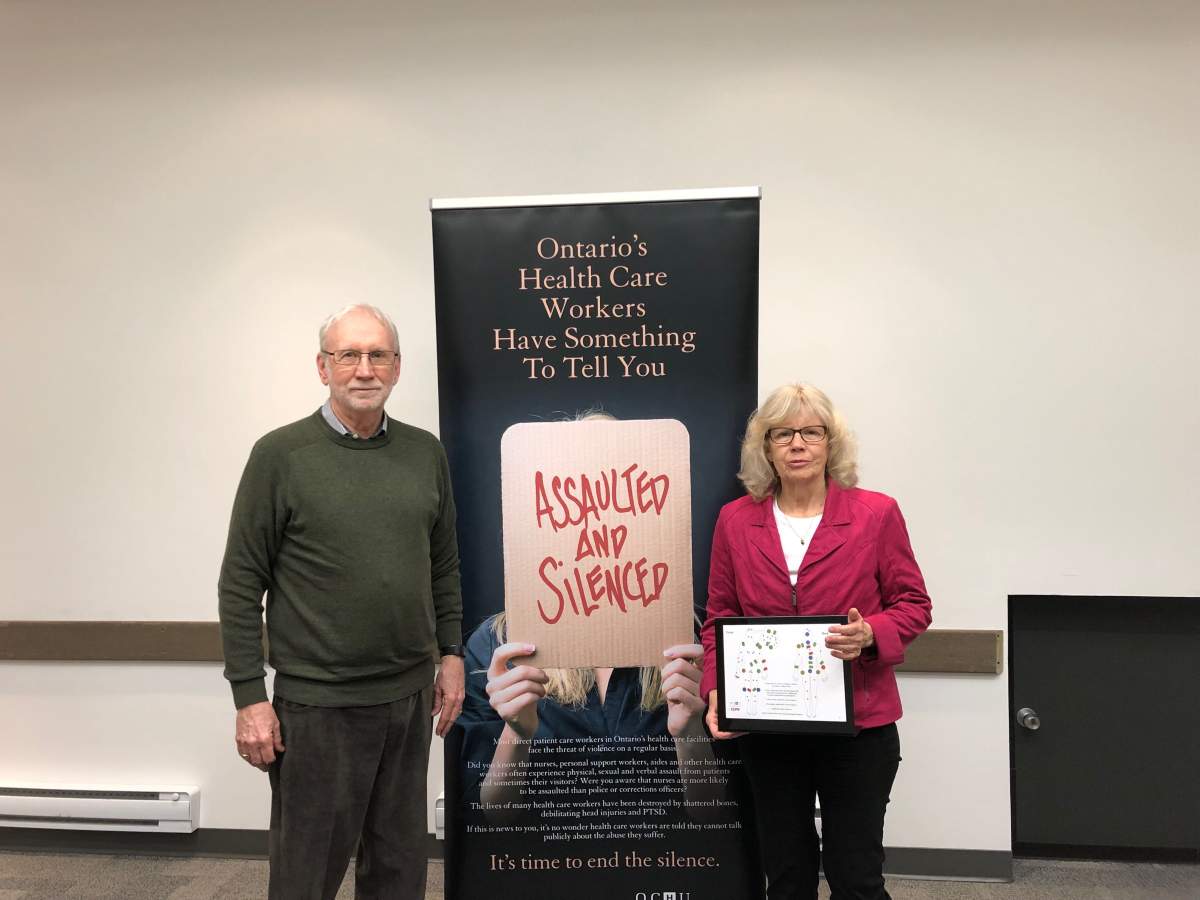New work from Canadian researchers has found that a majority of long-term care staff in Ontario experience workplace violence, verbal abuse and a fear of speaking out.

The findings come from an investigative study co-authored by Dr. James Brophy and Dr. Margaret Keith, along with an accompanying poll that surveyed more than 1,000 long-term care employees in seven Ontario communities.
Most of the violence was against women, with 80 per cent of female respondents saying they experience physical violence at least occasionally.
Co-author Dr. James Brophy says common incidents include broken teeth, concussions, twisted arms, being run over by wheelchairs, having hair pulled, being pounded to the ground and other serious injuries.
“And then there’s the day-to-day verbal abuse, which often has both a sexist and a racist connection to it,” Brophy said.
“Staff would report that they would often, at the end of a shift, sit in their car and just break down in tears.”
More than half of all women interviewed said they experienced sexual harassment at least occasionally, with 44 per cent reporting they had been sexually assaulted.

Get weekly health news
Brophy says these employees often lack emotional support, adding that a burden is often placed on them when reporting incidents to superiors.
“The victim is immediately put on the defensive, as if something about they themselves was what triggered this [incident].”
The research also revealed that more than half of all employees interviewed said they do not file incident reports.
Brophy noted that when conducting interviews, there was a “universal concern” among interview subjects that they’d be punished for speaking with researchers.
“There is something so fundamentally wrong with healthcare staff being silenced. That’s one of the reasons that the Ontario Council of Hospital Unions is demanding that we have whistleblower protection for healthcare workers,” said Brophy.
“The health of the healthcare system can be measured by the health of the healthcare staff.”
WATCH: Ontario Health Coalition report finds levels of care inadequate at province’s long-term care facilities

The research also delved into the mental health of long-term care staff, with nearly three quarters of respondents having experienced work-related stress, anxiety and depression. Meanwhile, 65 per cent of respondents say they are considering leaving their jobs.
Similar findings were found in a earlier report from the Ontario Health Coalition. Along with escalating violence in long-term care facilities, the report also outlined issues of access, planning and levels of care.
As for potential solutions, Brophy points to more staffing and increasing funding, along with regulatory changes, such as a flagging system for violent individuals as potential solutions for Ontario’s long-term care system.











Comments
Want to discuss? Please read our Commenting Policy first.